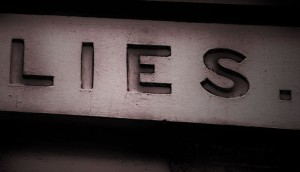 What are the signs that a person is lying?
What are the signs that a person is lying?
- The person rubs their forehead or neck
- Perspiring, trembling and blushing
- Delayed nodding to support an answer they’ve given
- All of the above
If you’ve been in HR for very long, you have probably run across some employee relations or management issues. Inevitably, someone will end up lying to you before too much time has passed. But how do you detect when someone’s not telling the truth? How do you know when to dig deeper on a question that someone’s trying to avoid answering? I recently ran across a free guide from i-Sight (link below), and I thought it was a resource worth sharing.
Let me start by saying I wish we didn’t have to discuss this. People lie in the workplace for a number of reasons, and some of them are completely unnecessary. At first I thought this topic and guide wouldn’t be very useful, and then I realized that as much as I would like to trust some people, many have no compunctions about lying to keep themselves out of trouble or to build up their reputation, even if the resulting mess is worse than the original offense!
I appreciate the fact that the author of the guide mentions the fallibility of lie detecting.
Because it is so difficult to read deception, it is very easy to make mistakes when trying to work out whether or not someone is lying. Although Polygraphs are only accurate in detecting lies 6o-8o% of the time (dependant on the skill of the operator), people are mostly only accurate 5o% of the time. And this statistic applies to many `experts’ including law enforcement officials.
People often mistake physical manifestations of stress as being indicators of lies being told. This sometimes happens to innocent people standing trial in a criminal case for a crime they didn’t commit. The irony is the guilty defendant will have had plenty of time, sometimes years, to rehearse their lie. The innocent person will not have rehearsed because they are telling the truth and are scared because they have a lot to lose.
No single behavior is a reliable indicator of deception. So don’t assume that because the person looks away when you are talking to them, they are lying about something. You need to look for clusters or groupings of deception indicators.
Inside the guide, you’ll find a list of signs that a person is lying to you when asking investigation questions, but it’s important to look at the entire situation and reaction instead of making a snap judgement. You’re not the lie-detecting whiz you might think you are, Dick Tracy. :-)
Check out the free Black Book of Lie Detection PDF guide by i-Sight to learn more about detecting false statements and lies in the workplace.
Leave a Reply
You must be logged in to post a comment.